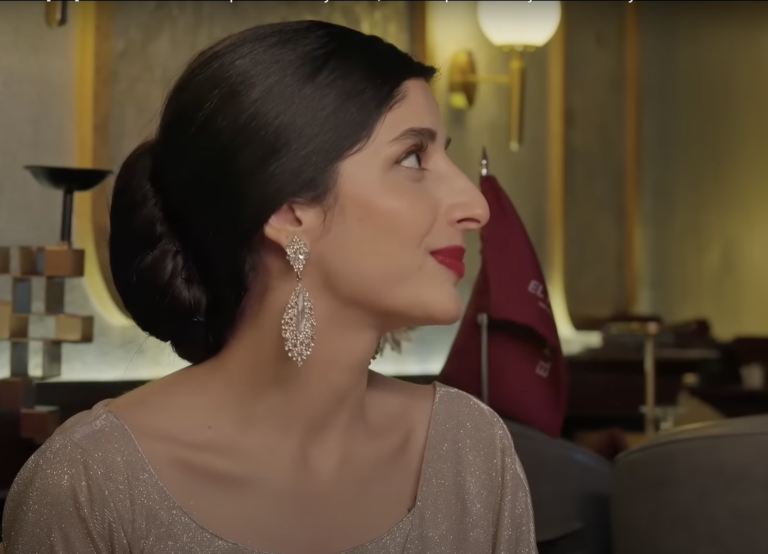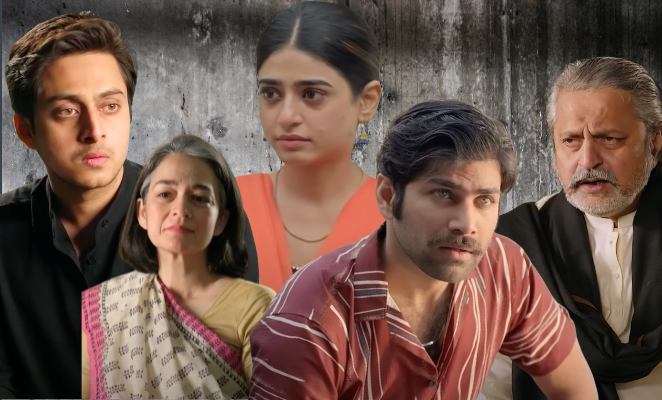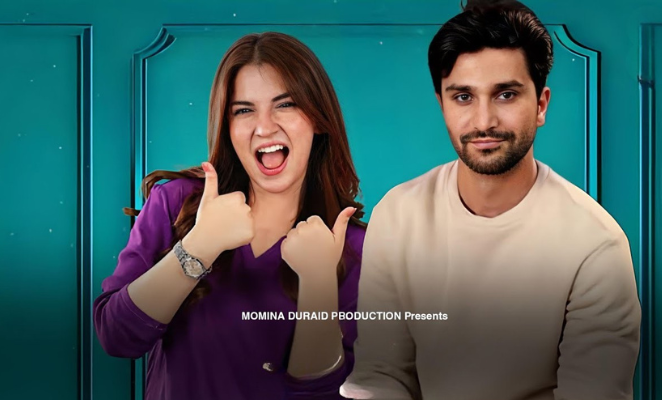Mein azad hoona chahati hoon.
Azaadi. Khudmukhtari. Freedom. Independence. A few weeks ago, I suggested that Firaaq was about freedom, and ghooma, phira kar baat wahin aa gayee hai. Even though the narrative clearly singles out Paiman, as she is the lead protagonist, in this elusive search, I would venture that every character is in search for freedom. Maa-jee from the demons of her past, unka mazi; Sara from her mistake of soliciting Imroze’s advise; and Shams from his fear, his security, of what a child might do to him.
I left off last week fawning over Uzma Gillani and Syed Mazhar Ali, so this week I’ll pick up exactly there. It is clear to anyone who might regularly watch Firaaq, that both the older actors have performed their roles par excellence. Haider’s emotional state at the thought of losing the woman he is in love with despite her very obvious flaws had me break out in a tear or two (shhh, it’s a secret!). His tears, his gestures, his words, waqai Haider saab aap shaitaan hain ya koi farishtaa? Every week Haider and Tabassum give us a peek into a relationship that’s not perfect but still qayam. In a day and age where divorce, separation, egos, and azaadi are notions that govern even the simplest of minds, seeing these two stick it out together, if only out of some warped sense of commitment, makes me smile.
As Haider sheds a tear on behalf of a woman he’s unable to understand yet still cares for, as Maa-jee comes to one difficult realization after another and acknowledges him for the person he is, the man he is, now this is what I wanted to see on my television screen all year. I want to cry with Tabassum, I want to feel her pain, her longing, I want to travel with her as she transitions from a bitter, lonely, and angry woman to a loving, caring, and forgiving mother she can, and I hope she will be. Every dialogue that these two share is rendered to perfection. Again, thank you Uzma sahiba and Syed saab for you excellent performances!
The thought of Maa-jee passing away, and I can only say this in Punjabi, tussi tay meray trrah kad ditta. The one character I hope (no, pray!) that they don’t kill off at least not till they’ve arrived at some form of closure is Maa-jee. Her life has been incomplete in so many ways that I want her character to have some semblance of peace, some modicum of sakoon. Lekin iss ghar mein (in fact, zindagi mein) hai koi sakoon? Is this offer of peace, this offer of re-conciliation, a step towards that ever-elusive thing called peace of mind. Indeed, like Haider, I can’t help but say: “Maine hameeshan tumhe samajhnay ki bahut koshish kari hai lekin aaj tak samajh mein aa nahi saki.”
Maa-jee ek kaisi paheli hain?
These realizations – of who you love, what you care for, and what did all this anger achieve – came at the cost of great confrontation and with it even greater ruptures. Paiman left not only Maa-jee and Haider, but also Shams and Sara. For her, all I have this week is a song, I hope you’ll see that azaadi (freedom) isn’t necessarily the same as khudmukhtari (liberty):
https://www.youtube.com/watch?v=TGPcGfcX-40
The other rupture that threatens to escalate is between Shams and Sara. Shams’ stubbornness, his inner sense of mardaani, cannot handle being challenged by not one but two women, his sister and his wife, both of whom have left him. One because she doesn’t want to be controlled, the other because she is tired of being ignored. Like Maa-jee, Shams is left to face his own demons and as Sara says, to find himself. Junaid Khan’s Shams is perfect every week. His acting never disappoints (truly!) but it never really gives one that oomph factor. Nonetheless, I’m enjoy seeing him on screen especially with Sara, those two are meant to fight! Cybil, I believe gets a lot of flak for her accent, for her delivery, for her acting skills, etc. etc., but I like her as Sara. She’s not timid, she’s not submissive, and she speaks her mind, which is what Sara’s character needs. For what it’s worth, Ms. Chaudhary, I think you’re fine, and with time you’ll be more comfortable in front of the camera. Haters gonna hate, right?!
With all this action ensuing, I can’t help but think that Rumi is at times used as a prop. As a person to seek advise, as a person to shout at it, as someone to fill in the scenes – what is his storyline?
Yet again a well-scripted, tightly knit, and well-edited episode with compelling dialogues and good direction. Firaaq, khawateen-o-hazraat, is a must watch!
Till next week,
Rab Rakha
RB (Tweet me!)










 Watch our full review on Yo
Watch our full review on Yo




